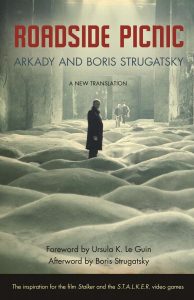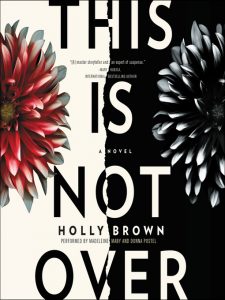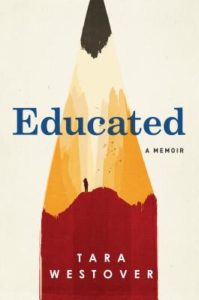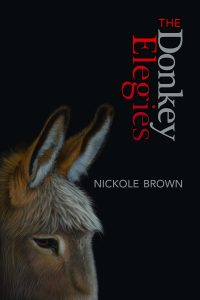
A few days ago, the staff at Literary Hub had a spirited debate over the 50 best fictional booksellers. From Rory Gilmore (remember that one episode where she worked in Stars Hollows Books and sold books bought all the books?) to Robin Sloan’s Mr. Penumbra to Stacked‘s Skyler Dayton, there sure are a wide array of fascinating bookseller personalities in pop culture.
Of course, the very best ones can be found at your local brick-and-mortar bookshop. They’ll give you the lowdown on the latest literary controversy. They’ll recommend a few cool new children’s books to bring to your friend’s baby shower. You might end up in a twenty minute conversation you didn’t know you needed about the underappreciated poet you both love. And if you ask them, as we did, for their favorite book—old or new—to press into the hands of bookshop goers, they won’t let you down.
Here are some titles for your TBR pile, hand-picked by ten independent booksellers at Interbang Books (Texas), Moe’s Books (California), Raven Book Store (Kansas), The Green Door (Kansas), and The Strand (New York City).
*
The Aosawa Murders by Riku Onda
(Bitter Lemon Press)
In The Aosawa Murders author Riku Onda unfolds her disturbing tale of a prominent Japanese family who, during a birthday celebration in their home, are poisoned with cyanide-laced drinks. The only survivors are the family’s long-serving maid and their daughter, Hisako, who has been blind since she was a young girl. Years later an unidentified interlocutor talks to various residents of the town who had some connection to the event, among them a retired police detective who cannot shake the notion that the man who confessed to the crime in a suicide note did not act alone, and Makiko, a childhood friend of Hisako who later wrote a controversial book about the poisonings, ‘The Forgotten Festival.’ The author layers characters’ conflicting impressions of the mercurial Hisako as well as Makiko and her intentions in writing ‘The Forgotten Festival.’ Onda is masterful at building suspense as the psychological tension among the characters grows and a stagnant, evil air saturates the Japanese coastal town that is the novel’s setting. The Aosawa Murders is so much more than a crime novel or police procedural. It is a stunning examination of evil and an uncommonly compelling story.
–Lori Feathers, Interabang Books
Drive Your Plow Over the Bones of the Dead by Olga Tokarczuk
(Riverhead)
Lighthearted and humorous, this is the most purely enjoyable book I’ve read this year. The eccentric narrator of Drive Your Plow Over the Bones of the Dead will pull you over to her side immediately in Olga Tokarczuk’s warm, endearing story about a string of bizarre deaths in a remote Polish village. A wonderful warning to the men who dismiss old women as crazy.
–Kalie McGuirl, Moe’s Books
The End of Vandalism by Tom Drury
(Grove Press)
A friend of mine posted a question to Twitter a while ago: what is the Great Midwestern Novel? My pick was The Round House by Louise Erdrich, and I still maintain that’s a worthy nomination. My friend, whom I trust dearly in matters of literary taste, nominated Tom Drury’s The End of Vandalism, a novel I had never heard of. Surely, since I work in a bookstore, I’d have at least heard of all the contenders for Great Midwestern Novel. Turns out, I was wrong.
The End of Vandalism is a shaggy story, and its plot moves at the loping speed of Iowa life. Centering on a rural love triangle between a conuty sheriff, a petty thief, and the thief’s ex-wife, the story takes its time building a vivid sense of place and secondary cast. The world-building here harkens to Elizabeth Strout, or dare I say it, William Faulkner. But the book’s biggest appeal to me is how funny it is, employing a dry Midwest Nice humor I rarely see in fiction. There are scenes that you’ll want to memorize, and jokes you’ll keep telling yourself long after you finish the book. Is it the Great Midwestern Novel? I don’t know, but I’ll be darned if it’s not a good read.
–Danny Caine, Owner, Raven Book Store
Women Talking by Miriam Toews
(Bloomsbury)
I loved this book. Toews uses an unusual format—the minutes of a meeting—to weave a surprisingly compelling story and set of characters. Toews’ women are complex and fully realized, and capable of bringing humor into a conversation where they contemplate the unthinkable.
–Francesca Honey, Moe’s Books
Valerie by Sara Stridsberg
(FSG)
When it comes to feminist fiction, it’s easy to cast things in black and white. Women are good; the patriarchy is bad. In Valerie, Sara Stridsberg takes that binary and turns it to kaleidoscope. There are no easy answers in this fictionalized account of the life of Valerie Solanas. Solanas is most famous for two intertwined acts: the penning of her misandrist work, The SCUM Manifesto, and the attempted murder of artist Andy Warhol. Debates around Solanas’s life and work are neverending. Was she being satirical when she advocated for SCUM (the Society for Cutting Up Men)? Was her shooting of Andy Warhol a reaction to a lifetime of sexist abuse or the inevitable result of her man-hating? Stridsberg does not claim to have the answers. Instead, she moves away from the facts, creating a lyrical fantasy where she reckons directly with Solanas’s legacy. Ultimately, the book asks a simple question: is there a sane response to the insane systems of oppression that govern our lives? It’s a puzzle I’m still trying to solve.
–Lia Hagen, Strand Book Store

Roadside Picnic by Arkady and Boris Strugatsky
(Chicago Review Press)
My favorite pick to hand-sell is Roadside Picnic by Boris and Arkady Strugatsky. It’s got some good selling points before even hitting the meat of the book—Ursula Le Guin made it a personal mission of hers to see the book in print in the U.S.; it inspired Andrei Tarkovsky to make the brilliant “Stalker”; most editions, including the last two pocketbook publications, come with a fascinating and unique history of the book’s attempted publication and endless rounds of censorship by the Goskomizdat—but all that noise is merely homage to how brilliant the book really is. It’s such a difficult book to forget because it reveals our own positionality, and demonstrates how broad a failing this lack of perspective is. Roadside Picnic shows us the reference frame of the standard First Contact mythos, where aliens come for us, for our possessions—our water, our ozone, our oil—for whatever resource the public knows is precious to our political moment. In Roadside Picnic, the aliens haven’t come here for any particular reason—they were traveling from one unfathomable place to the next, and decided to eat lunch on a random passing planet that just happened to be Earth. In their wake, humanity is forced to contend with their literal leftovers in harrowing, dangerous excursions. These trips into “the Zone” are a constant grappling with the humility of their lives and inescapability of their poverty on every literal and metaphorical level.
–Matt Hedley, Moe’s Books
My Love Story by Tina Turner
(Atria)
Tina Turner is not only the Queen of Rock, she’s the Queen of Second Acts. My Love Story picks up where her 1986 memoir I, Tina left off. She retraces her origin story, including her abusive 16-year marriage to Ike Turner, subsequent escape and the comeback to beat all comebacks: the 20x platinum certified, Grammy award winning album Private Dancer. In My Love Story, Tina reflects on her life as a whole and showcases how she’s weathered both her eldest son’s suicide and a kidney transplant from her husband Erwin Bach, who inspired the book’s title. My Love Story is more than just another rock biography, it’s a testament to Tina’s incredible resilience that she largely attributes to her Nichiren Buddhism practice that taught her how to turn “poison into medicine.”
–boice-Terrel Allen, Strand Book Store
It Would Be Night In Caracas by Karina Sainz Borgo
(Harpervia)
How far would you go to save yourself?What would you sacrifice? Whom would you sacrifice? In the nearly unimaginable violence of modern-day Venezuela, with her world destroyed in little more than an instant, Adelaida Falcon must make that decision. It Would Be Night in Caracas by Karina Sainz Borgo submerges us in a brutal reality that I would like to pretend does not exist. With a story told so compellingly that it seems more like memoir than fiction, catapulting through cataclysmic events to its dramatic conclusion, Karina Sainz Borgo has given us a heart-stopping and riveting read.
–Nancy Sims-West, Raven Book Store

This Is Not Over by Holly Brown
(William Morrow)
This book is a great read with well-developed characters, situational depth and insight. First, I have to recognize that there weren’t any typos or misspelled words in this book. Since unfortunately this is not the norm anymore, it deserves praise.
The story is basically about an email exchange between two women, one an Airbnb owner and the other her guest (they have never met ), gone awry. They each misinterpret, read tone, and twist what is actually intended in the initial exchange and things just continue to escalate with a vengeance. Like it or not, the situation is all too relatable. Written in a format of alternating viewpoints between the two main characters, you’ll find yourself siding with one, hating the other and reversing that several times throughout the book while simultaneously cringing and yelling at them to stop. On the surface they just seem crazy and childish. But keep reading and the author will intricately take you through the complexities of their parallel lives and the pain and angst they endure, and you will be feverishly turning the pages to see how their exchange ends.
–Christin Young, The Green Door Bookstore

Educated by Tara Westover
(Random House)
While what often gets the most press about this book is the harrowing details of Westover’s childhood in rural Idaho, what struck me the most was the beauty of Westover’s prose as she describes her growing consciousness of the world and her discovery of a passion and skill for academics she had never imagined. It’s moving and inspiring to witness Westover’s decision to fight for herself despite the consequences.
–Francesca Honey, Moe’s Books

The Donkey Elegies by Nickole Brown
(Sibling Rivalry Press)
Nickole Brown’s The Donkey Elegies: An Essay in Poems (Sibling Rivalry Press, 2020) broke my heart and then sewed it back together again with threads of animal kinship. Amidst necessary talk of human rights in a cruel and chaotic time, Brown gives visibility and voice to an age-old beast of burden that many of society’s outcasts can relate to. Mythically, donkeys have been present at humanity’s lynchpin moments: most notably, to carry a savior to his birth and, ultimately, to his death. Throughout history, they have pulled our loads and taken our beatings. And now, when they are no longer needed, they have been, in large part, abandoned, a barnyard anachronism. Brown’s writing both slays and soothes. It will send you into a pasture in search of a donkey.
–Kelly Barth, Raven Book Store
*
Happy reading!

